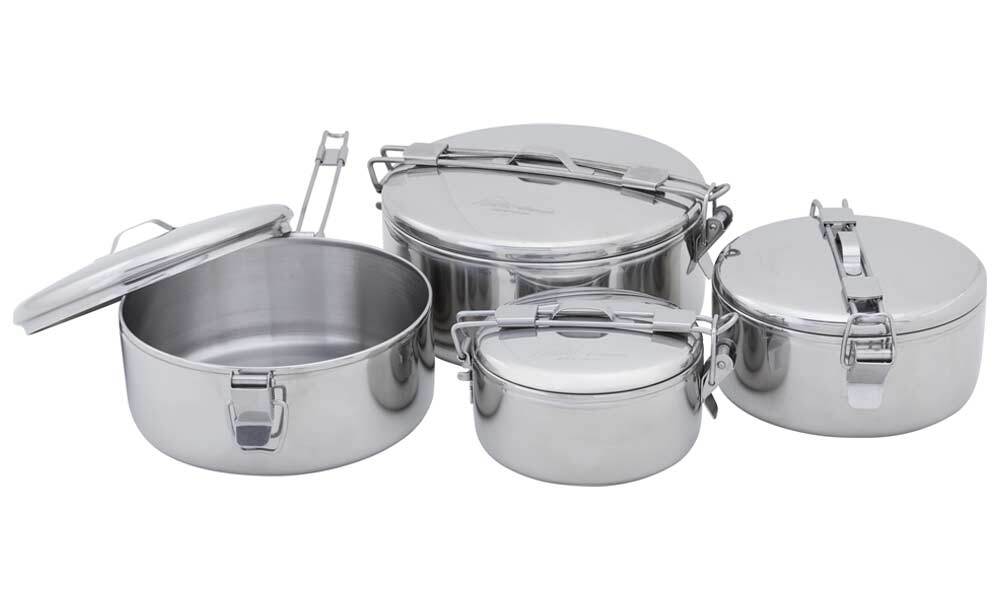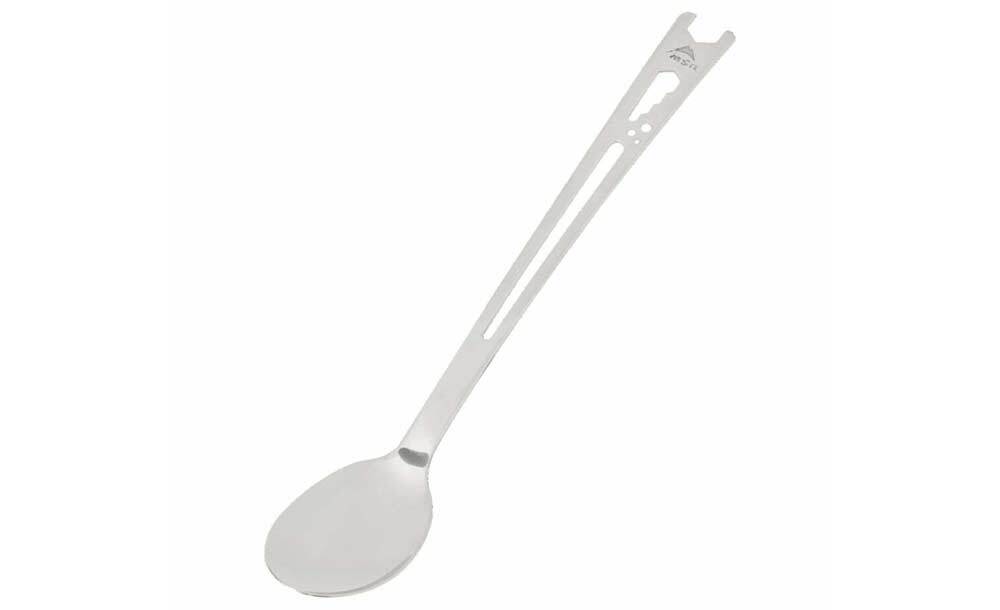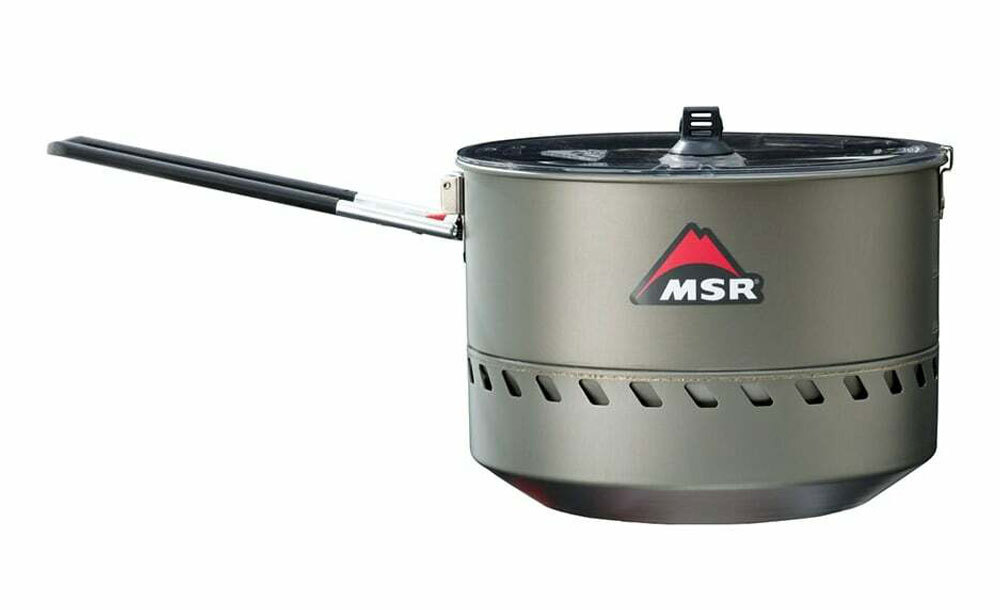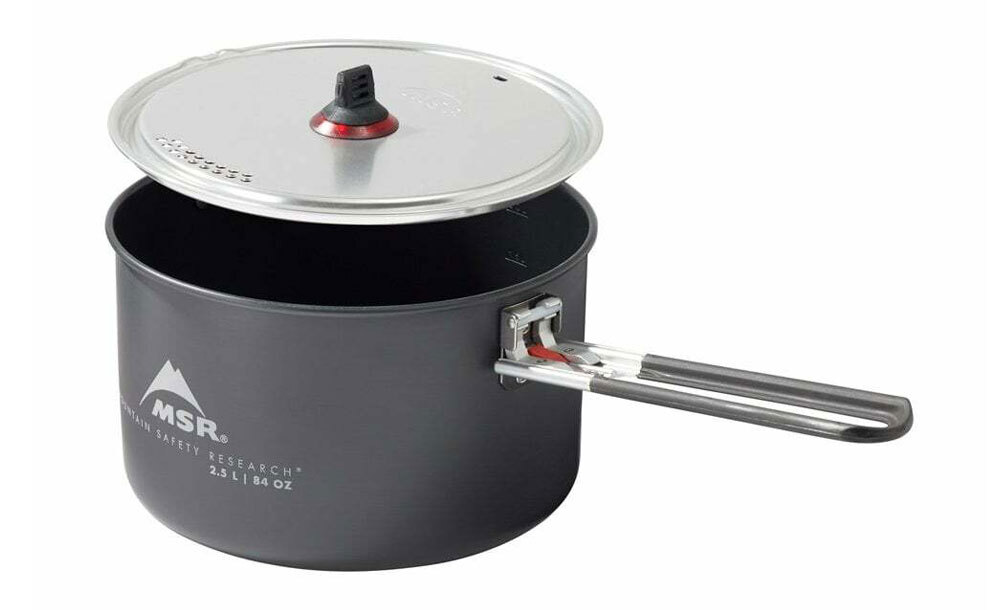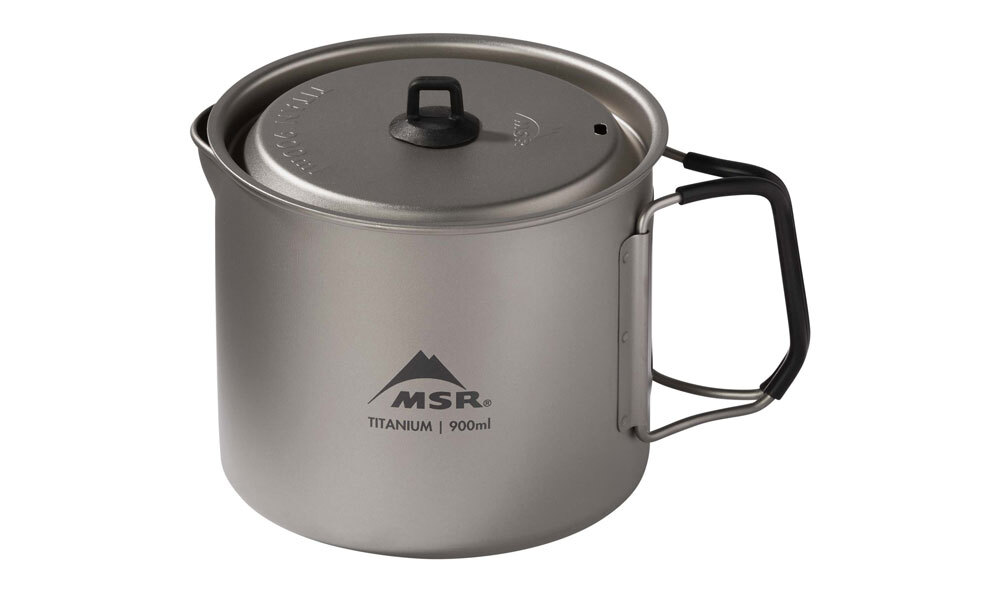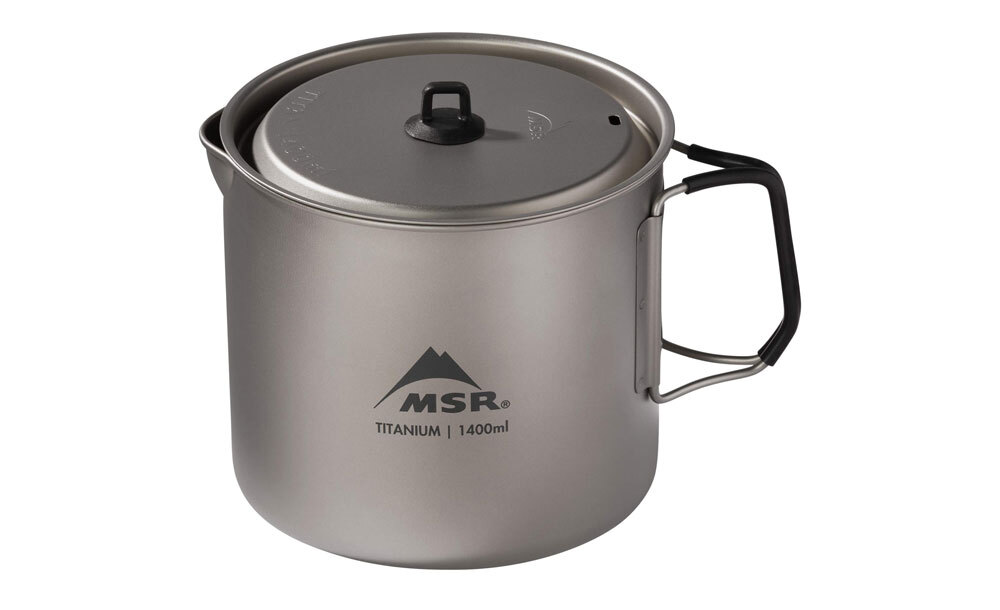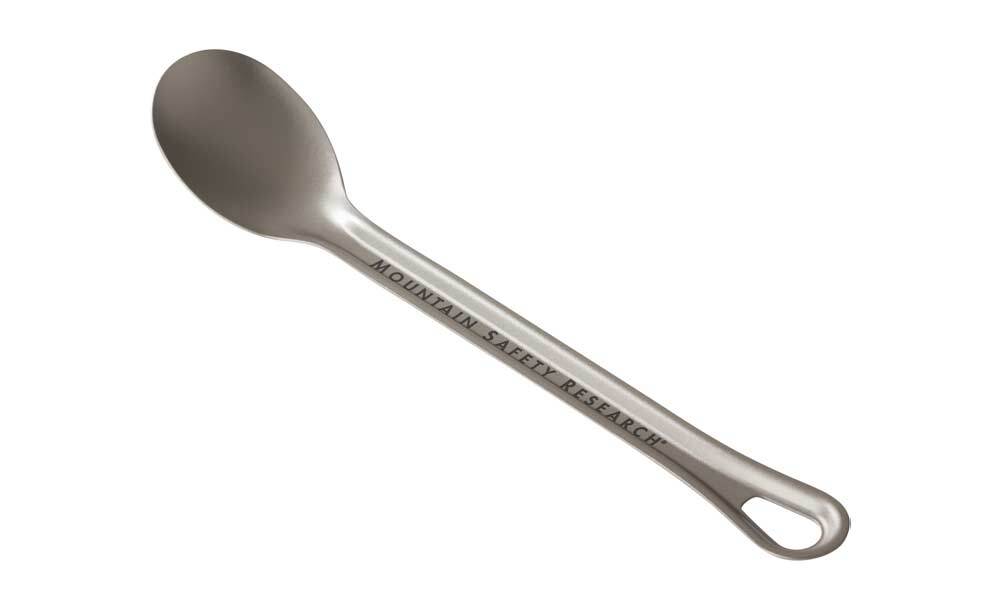The Ultimate Guide to MSR Cookware Materials
Jul 18, 2024
Each material has its key benefits—understanding them will help you pick the cook set that’s aimed at your needs, both on the trail and in the “kitchen”. Here’s a look at the three materials used in MSR cookware and why you might choose one over the other.
Finding the Right Cookware: Initial Considerations

1. Cooking Style
Are you cooking for seven at a camp ground, or do you mostly travel solo and only boil water for coffee and freeze-dried meals? Do you like to keep things light enough for backpacking, but still appreciate a decent meal with some homemade flair? Simmer or sauté? What you need your cookware to do will dictate what size and materials fit your needs.

2. Size/Weight
Beyond group size, you’ll need to think about what you need your cookware to do. Are you melting snow? Maybe the larger size pot will make more sense and be more efficient. Do you need the lightest titanium cookware imaginable? Are you a heavy user who prefers the durability of stainless steel, or is the happy medium of light-and-durable hard-anodised aluminium the right choice?

3. Material
This one circles back to the previous two, with choices like ceramic non-stick coatings for more epicurean cooking options, titanium for minimalists, or stainless steel for the most even heat distribution and ultimate durability.
Each choice impacts the others, so let’s organize MSR cookware by material, and you’ll get more clarity on the selection process.

Stainless Steel: Simple Workhorse Durability
Ideal For: Maximum Durability & Even Heat Distribution
Stainless steel is very durable, so it’s perfect for when your pots take a lot of abuse. This makes it a top choice of back country travellers who are hard on their gear, or guides and institutions where cooks prep lots of meals for lots of people.
Stainless steel is by far the toughest and most scratch-resistant of the three materials MSR uses, though it weighs a bit more than aluminium and titanium. It’s used to make the simple, dependable systems in the MSR Alpine™ line of camp cookware.

Hard-Anodised Aluminium: All-Around, Lightweight Versatility
Ideal For: The Best Blend of Durability, Lightweight & Cooking Performance
Hard-anodised Aluminium is the cookware of choice for all-around back country use. It conducts heat evenly and is lightweight and easy to clean. Because it disperses heat uniformly across the cookware surface, aluminium is a good choice for cooking real meals with fresh ingredients or temperature-sensitive foods like eggs or pancakes.
Aluminium is also extremely efficient, meaning it transfers heat quickly. This helps to save fuel, allowing fast packers and solo travellers to shed weight and move more quickly.
MSR Aluminium Pots feature a hard-anodised finish, a production process that makes the material very durable. Many backpackers choose hard-anodised aluminium because it delivers an excellent balance of durability and lighter weight at an affordable price. MSR’s Cook Sets feature hard-anodised aluminium pots.

Non-Stick Hard Anodised Aluminium
Ideal For: Easy Clean-Up & Complex Cooking Styles
Our premium non-stick cookware uses a PTFE and PFOA-free non-stick ceramic Fusion® coating applied to hard-anodised aluminium cookware, while our Quick Skillet offers a budget option for non-stick performance in a smaller, more compact form. Non-stick is excellent for all the reasons it is at home: easy clean-up and worry-free cooking of all things that tend to gum up regular pots and pans. From eggs and meats to long saucy simmers, we made these so you can release your inner chef anywhere you like. Note: as with any non-stick cookware, you should use only non-metal utensils when cooking. It’s also a good idea to use a small PackTowl® (or cut a piece of an old one) as a protective layer between pots when nesting them for packing. Then you’ll also have a handy wash rag along.

Titanium: The Fast and Light Choice
Ideal For: Ultralight & Ultra-Simple Meals
In 1999, the MSR product catalogue declared: “You want light? You want strong? You want Titanium.” Indeed, titanium’s biggest advantage is its ultralight performance. Titanium is 45% lighter than steel and stronger than aluminium. It is the lightest cookware material you can buy before you must sacrifice strength. It’s also corrosion-resistant, offering great durability.
Titanium Pots are ideal primarily for boiling water because they can be made with thin walls and transfer heat very quickly. Like stainless steel pots, they tend to develop hot spots, making them less than ideal for cooking real meals. Titanium is favoured by the truly fast-and-light crowd, who count their grams and opt for quick boil-only meals after a long, exhausting day.
Final Considerations
Cookware’s efficiency is also dependent on its colour, pot diameter and height. Darker pots, especially with dark bottoms, tend to be the most fuel-efficient. As older cookware blackens with use, it becomes more efficient than new cookware. Wider-diameter pots are more efficient than narrow ones because more surface area is exposed to the flame and hot exhaust gasses, transferring heat to the system faster.
Backpacking cookware comes in a variety of materials to meet the priorities of everyone, from fastpackers to dedicated backcountry chefs. Each material has its key benefits—understanding them will help you pick the cook set that’s aimed at your needs, both on the trail and in the “kitchen”. Here’s a look at the three materials used in MSR cookware and why you might choose one over the other.

